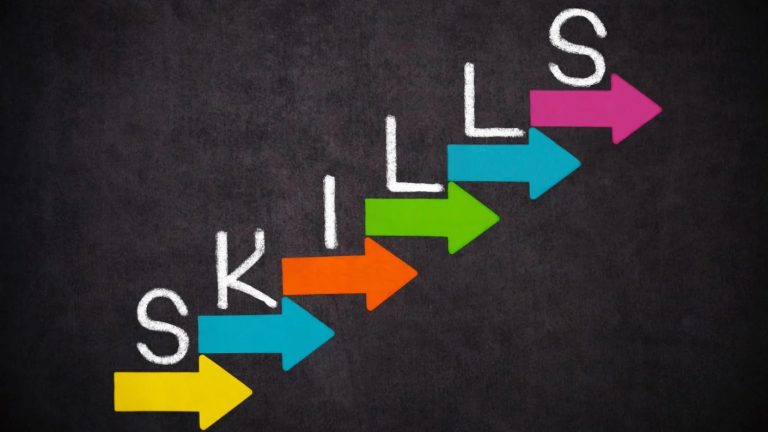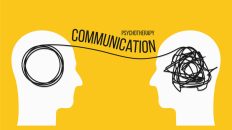“Soft Skills get little respect but will make or break your career”-Peggy Klaus.
In today’s highly competitive business environment, soft skills are in high demand and are required in every industry at every level. Soft skills also known as transferrable skills, interpersonal skills, people skills, social skills, or meta-skills are intangible, non-technical, and personal attributes that enable us to interact efficaciously and amicably with other people. Improved communication, leadership skills, problem-solving ability, teamwork, critical thinking, creativity, flexibility, interpersonal skills, and time management ability are a few of the proven benefits of transferrable skills in the workplace.
Research has shown that soft skills are much more difficult to acquire than hard skills as they require proactive engagement with others regularly and a keenness to manage conflicts, solve problems, and accept feedback affirmatively. The best part is that developing human skills at work is possible. Through proper learning, training, and development, social skills can be recognized, refined, and improved. In this article, I will suggest a few strategies to develop interpersonal skills.
1. Determine which skills you need to improve and work on them.
On a scale of 0 to 10….How would you rate your: –
• Leadership skills
• Interpersonal skills
• Communication skills
• Time management skills
• Adaptability skills
• Self-motivation and creativity
• Problem-solving ability
• The ability to work under pressure
• The ability to accept changes
Try to answer each question as honestly as you can, since these questions touch on the fundamentals you want to know about yourself: –
• Are you extrovert, introverted, or ambivert?
• What are your strengths and weaknesses?
• What are the areas that you need to work on?
• How can you uncover your full potential?
By recognising the practical realities of work, you can acquire the knowledge and skills necessary to perform the task productively.
2. Develop your communication skills.
Communication is the essence of every type of job in any organisation. Take this short communication test to identify how good you are as a communicator: –
|
Yes | No |
If you’ve answered “yes” to most of these questions, you’re a good communicator, but if the answer is “no,” you can improve your conversation skills by listening attentively, focusing on non-verbal signals, showing empathy, learning to write emails, texts, and instant messages appropriately, and seeking suitable feedback. It’s difficult, but it’s well worth it!
3. Scrutinize and Evaluate corrective Feedback.
In a study of 65,672 employees, Gallup’s research has found that turnover rates for employees who did not receive any feedback were 14.9% higher than those who received feedback on their strengths. In particular, the study has definitively revealed that if there is regularity in employee feedback, the company can improve employee retention. These few tips will make your feedback positive and fruitful:-
A. While Receiving Feedback:-
• Concentrate and understand what’s being said.
• Do not take it personally.
• Cultivate a growth mindset by embracing feedback as an opportunity to learn, improve, and grow.
• Admit your mistake, try to fix it if possible, learn from it, and move forward.
• Finally, don’t forget to thank the person for sharing their response.
These are 2 positive ways to acknowledge observations: –
1. You’re right. I am sorry you’re unhappy about that…
2. I appreciate your suggestions. I will improve on my…..
Approaches to asking for feedback: –
1. How can I get better at……?
2. What tips do you have for me to help me prepare for…?
B. While Providing Feedback: –
• Identify the purpose of giving advice.
• Avoid any urge to judge or blame others.
• Focus on the problems and their possible solutions, not on the person.
• Asking questions encourages two-way communication and gives both parties the opportunity to hear each other’s viewpoints and mutually address the problem.
• Be open-minded and allow others to be a part of the problem-solving process.
Two examples of giving positive feedback are: –
1. One of the things I appreciate/admire about you is…
2. Thank you for being prepared, putting in extra efforts, etc.
Remember this: Asking, receiving, and giving feedback should be done on a regular and repetitive basis. Don’t just do it once. Keep on doing it!
4. Build teamwork into your vision.
Promoting a team-working culture among the employees creates a sense of belonging and encourages team members to share tasks and responsibilities. These are five steps to team building.
Step 1: Identify team goals. Ensure every member knows what is the common objective everyone is striving for and how each individual can contribute to meet the desired goals.
Step 2: Identify individual goals. By identifying the roles, passions, strengths, and weaknesses, the leader needs to set clear, precise, difficult-yet-achievable targets with guidelines of what is expected from each of the employee that help the team achieve success.
Step 3:– Foster a congenial environment. Encourage an environment where team members are open, flexible, and creative to share ideas and suggestions and can take calculated risks both individually and as a team. Most importantly, they treat each other with warmth and respect.
Step 4:- Promote two-way communication. Two-way communication on a regular basis allows immediate comments; persuades others to convey their complaints, feelings, interests, and opinions; seek clarifications; clears misunderstandings; and builds a democratic atmosphere.
Step 5:- Provide regular rewards. Create a culture of recognition and rewards since it leads to better employee engagement, increased productivity with retention and motivates human resources to continue or improve their performances.
In a nutshell, once you identify your goals, find suitable people to perform those tasks, get creative, and discover unique ways to work together.
Trivia:-
• Gallup’s study reveals that 86% of the employees cite a lack of collaboration as the reason for workplace failures.
• It adds that happy employees have 31% higher productivity, 37% higher sales, and 3 times more creativity than unhappy employees.
• The research further reveals that 83% of employees were content with their job in a company that offered a recognition program.
• At last, teams that focus on strengths every day have 12.5% higher productivity, and employees who use their strengths every day are six times more likely to be engaged in their jobs.
Here are a few more smart tips to hone your people skills: –
1. You can become better at something if you learn something new or do it often enough. To acquire new skills, join any online or offline development program or tutorial, read e-books, books, magazines, or newspapers, or attend webinars /seminars on meta- skills.
2. Push yourself out of your comfort zone by audaciously facing your fear. Expand your professional expertise and step forward into the growth zone.
3. Enhance your problem-solving and critical thinking abilities by: –
• identifying the core problem.
• finding possible solutions to address the problem.
• analysing all alternatives and selecting the most appropriate one.
• implementing the decision into results.
• regularly monitor your plans to make suitable changes.
4. Embrace new challenges to discover more, improve your existing knowledge and skills, gain new experiences to widen your perspective, and become a better version of yourself.
5. Learning to manage conflicts well at work can help to avert a situation that fosters pessimism, anxiety, demotivation, and even a breakdown in relations.
6. Adapt to change to new ideas, innovation, or skills to respond positively to changing work situations. Be aware of external and internal business scenarios by conducting regular SWOT (Strength, Weakness, Opportunity, and Threat) analysis, be inquisitive and flexible to identify change, and take appropriate actions to create a positive outcome from difficult circumstances.
7. To end with, build on your time management skills by identifying your “time-pressed tasks” first, focusing on high-priority tasks, getting rid of procrastination, avoiding the urge to multitask, and learning to say “NO” when required.
I am sure you will benefit from these suggestions. Developing soft skills, you will not just increase your work performance but also help you create and maintain congenial relationships, which is a precious trait in the business world.
























